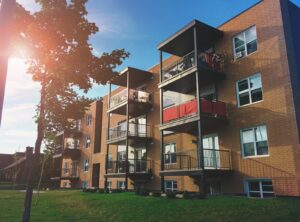 Being a practitioner it’s healthy to start with realism. Budgets are stretched, cutbacks enforced, while procurement rules are toughened at local authority level. Add to this the fact that solar photovoltaic is still seen as a sustainability issue, the domain of the sustainability officer, not the financial director.
Being a practitioner it’s healthy to start with realism. Budgets are stretched, cutbacks enforced, while procurement rules are toughened at local authority level. Add to this the fact that solar photovoltaic is still seen as a sustainability issue, the domain of the sustainability officer, not the financial director.
This view is outdated: the commercial world has been talking about ‘yields’ from solar [the return to the investor] rather than carbon saved for ages. Solar PV promised so much when it leapt out of the starting blocks four years ago, but the picture become confused with policy change, and ‘get rich quick’ strategies.
Which begs the question: why are there overseas banks with £100m to spend on solar PV, or domestic Enterprise Investment Scheme funds with a cool £100 – £300m to invest? The answer is that solar is still yielding a cool double-digit return; add to that tax breaks, in a low interest rate environment, with a ‘plug and play’ technology and you have a race to secure as many roof tops as possible for deployment.
Here’s the sting: we the utility bill payers are all paying for the income stream – through feed-in tariffs (FITs) – for these banks, venture capitalists and investment boutiques to prosper. What compounds the problem is that they are approaching our local authorities and housing associations, promising ‘free install’ while they pocket the associated generation revenues (FITs) – paid for by us.
When a financial director of a housing association or local authority is approached by an organization with a strong balance sheet, or weight of money in a dedicated fund, it must be easy for them to agree. After all, tenants are going to benefit from reduced electricity bills, and the cost to the organisation is nothing, because it’s a ‘free install.’
What is the alternative, you may ask? As much as the finance director might agree with community energy, the cash isn’t there at the outset. The money has to be raised through a share offer, while there is a danger of tariff prices slipping.
Well, times are changing, and so they should be, because the benefits to the local authority, the housing association and the local community can be multiplied through mutual ownership of solar schemes, funded through loan and equity investment via a community benefit society – a form of co-operative. The benefits are multiplied, because the income stream (the FIT payments), is re-distributed to the housing association, local authority or local community, instead of being pocketed by the financiers.
What’s changed? There’s been a series of successful community equity offers to build up understanding, confidence and track record in solar PV schemes.
At the same time, there’s been a realisation that debt or loans are required to scale. If the asset (solar PV at around 12% return) pays cash investors around 7% or loan investors around 4%, that leaves more return for the community, if the majority is funded by debt.
Also, the debt investor is often secured very early on in the investment process, an assurance that the deployment will go ahead. In addition to this, the surplus revenues retained, deployed for community benefit, attract ‘impact investors’. The model is no longer ‘install the solar and walk away’. Solar PV is an engagement tool in order to start an energy journey and education for tenants and the community.
The surplus revenues can now be spent on energy efficiency measures, energy advice clinics, training days and community buildings, instead of going overseas or in the hands of the very few. The social impact funds, coupled with forward-thinking pension funds as debt investors, are providing the infrastructure to put well-run community energy projects on a par with what large financial organisations can offer, with no bad after taste left in the mouth.
It’s the ‘leg up’ the sector needed to redistribute the FIT income streams back to the community and the third sector – where it is originally sourced – instead of going to the very few.


















Leave a Reply